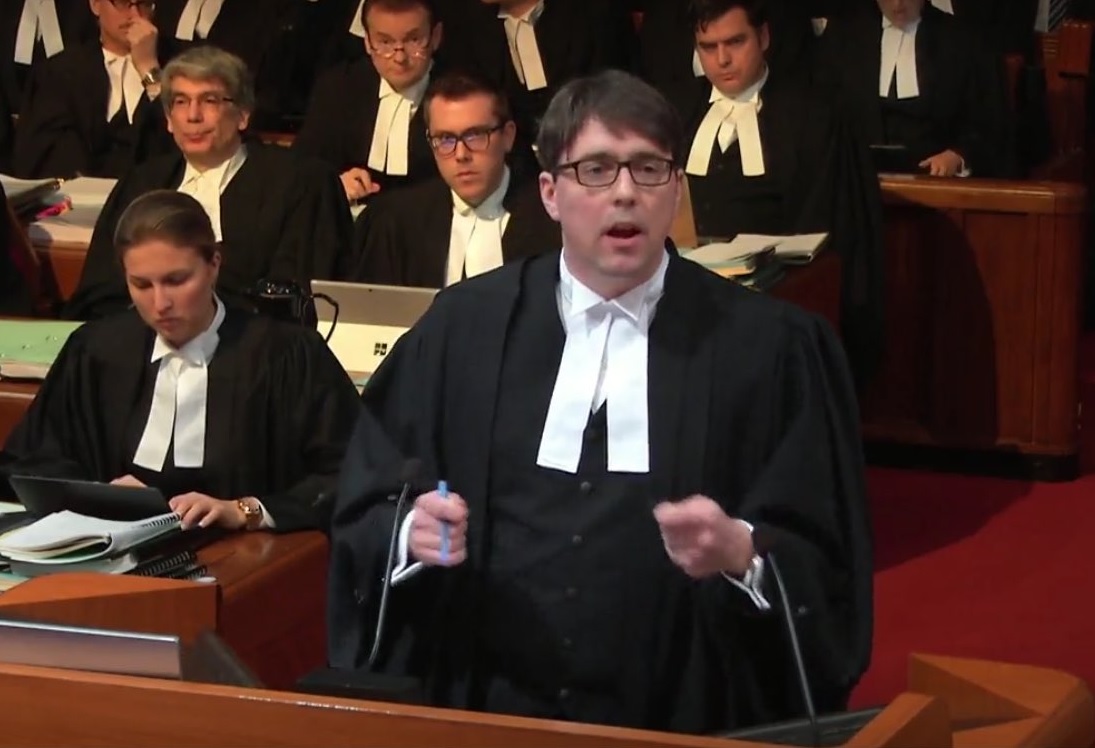
UAlberta Law Assistant Professor Malcolm Lavoie advocating at the Supreme Court of Canada on Dec. 7, 2017 (source: Twitter)
UAlberta Law Assistant Professor Malcolm Lavoie appeared before the Supreme Court of Canada on Thursday, December 7 in a landmark case that has pitted provincial and territorial governments against private sector intervenors in an effort to delineate the scope of the free trade clause in the Constitution Act, 1867.
The case was also of great historical significance as the last appeal presided over by Chief Justice Beverley McLachlin, Canada's longest serving - and first female - Supreme Court Chief Justice.
"It was a tremendous honour to be part of Chief Justice McLachlin's final case," said Lavoie.
The case in question, R v Comeau, centres on Gérard Comeau, the Tracadie, New Brunswick man who in 2012 was charged with violating the province's liquor act after purchasing multiple cases of beer across the border in Quebec for his own personal use and bringing them back into New Brunswick.
At trial Comeau's lawyers successfully argued that the charges against him were unconstitutional under Section 121 of the Constitution Act, which protects free trade between provinces. The New Brunswick government appealed, and the subsequent SCC case attracted widespread attention, drawing numerous intervenors on both sides of the argument.
Lavoie, who in a 2016 paper on the case argued for a balance between interprovincial free trade and provincial authority, was approached by the Calgary-based beer importer Artisan Ales, a company specializing in craft beers whose business has been negatively affected by Alberta government markups on beer produced out of province - who sought to intervene in the case.
"Mr. Comeau's lawyers were asking for more far-reaching measures, eliminating most interprovincial trade barriers. My argument was essentially for a middle ground, namely that provincial governments need to have a good justification for treating out-of-province goods differently from in-province goods," he explained.
Chief Justice McLachlin received a standing ovation at the end of the appeal, and a ceremony was held in her honour as she exited Canada's top court for the last time.
"It was very moving," said Lavoie of the ceremony.